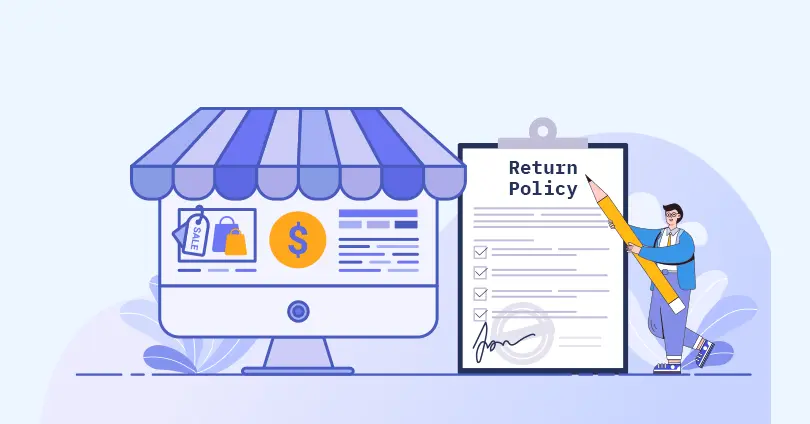How to scale e-commerce business in 2024?
Published on September 10, 2024

Scaling an e-commerce business is the key to thriving in an increasingly competitive market. With the rapid growth of online shopping,e-commerce businesses must adopt digital strategies that enable them to scale effectively, ensuring great return on investment.
But what does scaling truly mean, and how is it different from simply growing your business?
By the end of this blog, you’ll have a clear roadmap to take your e-commerce business to the next level.
1. Scaling vs Growing a Business
It’s essential to differentiate between scaling and growing a business. Growth typically involves increasing your revenue by adding resources like more employees, inventory, or locations.
However, scaling refers to growing your revenue without a corresponding increase in costs. This means you’re optimising your operations so that your profits grow disproportionately to your expenses.
For instance, if an Indian e-commerce company sees a 30% increase in sales but only a 10% rise in operational costs, it’s scaling effectively.
This distinction is crucial because scaling ensures your business can handle more customers, orders, and revenue without sacrificing profitability.
2. Step Up Your Inbound Marketing Game
Inbound marketing is a powerful tool for e-commerce businesses looking to scale. Unlike traditional outbound marketing, which pushes products onto customers, inbound marketing focuses on attracting potential customers through valuable content, SEO, and social media engagement.
For example, a leading e-commerce platform in India could see a significant boost in traffic and conversions by investing in content that educates and informs its target audience. By hiring a top digital marketing companie, businesses can implement advanced SEO strategies, produce high-quality blog content, and create engaging social media campaigns that drive organic traffic.
Statistics show that businesses that prioritise blogging are 13 times more likely to achieve a positive ROI. Additionally, companies that invest in SEO see an average of 14.6% conversion rate, compared to 1.7% from traditional outbound methods. For Indian e-commerce businesses, this could translate to a substantial increase in sales without a proportional increase in marketing spend.
3. Befriend Automation
Automation is one of the most effective ways to scale an e-commerce business without inflating costs. By automating routine tasks such as order processing, inventory management, and customer service, you free up valuable time and resources that can be redirected to more strategic activities.
For example, implementing an automated email marketing campaign that targets customers based on their browsing and purchase history can lead to higher engagement and repeat purchases. Similarly, automating inventory updates and order tracking ensures that customers always have accurate information, improving their overall experience.
A case study from a prominent Indian e-commerce business showed that by automating their email marketing, they were able to increase their sales by 20% while reducing their marketing workload by 50%. This kind of efficiency is what makes automation a critical component of scaling.
4. Outsource Where Possible
Outsourcing non-core functions is another strategy that can help you scale efficiently. Tasks like customer support, content creation, and even some aspects of digital marketing for e-commerce can be outsourced to specialized agencies or freelancers. This allows you to focus on what you do best—selling products.
For instance, a mid-sized e-commerce business in India might find it challenging to manage all its customer service inquiries in-house as it scales. By outsourcing customer support to a reputable third-party provider, the business can maintain high service standards without the overhead costs of hiring and training additional staff.
Outsourcing digital marketing can also be a game-changer be cause they provide ecommerce business idea. These companies bring expertise, tools, and a proven track record, helping you implement more effective campaigns that drive traffic and sales. Outsourcing can significantly reduce costs while maintaining or even improving quality, which is essential for scaling.
5. Create an Exceptional Customer Service Policy
An exceptional customer service policy is crucial for scaling your e-commerce business. As you grow, the volume of customer inquiries, complaints, and feedback will increase. Having a robust customer service policy ensures that you can handle these efficiently, keeping your customers satisfied and loyal.
According to a report by HubSpot, 93% of customers are likely to make repeat purchases with companies that offer excellent customer service. In India, where customer expectations are increasingly aligning with global standards, this becomes even more critical. An e-commerce business that consistently delivers excellent customer service can differentiate itself in a crowded market, driving customer loyalty and repeat business.
For example, implementing a 24/7 customer support system, offering easy returns and refunds, and providing personalised assistance can significantly enhance the customer experience. This not only helps retain customers but also attracts new ones through positive word-of-mouth.

6. Implement a Robust Customer Retention Strategy
Acquiring new customers is important, but retaining them is even more crucial when scaling. Customer retention is more cost-effective than acquisition, and loyal customers tend to spend more over time. In fact, increasing customer retention by just 5% can boost profits by 25% to 95%, according to Bain & Company.
One effective customer retention strategy is implementing a loyalty program that rewards repeat purchases. For example, Flipkart’s Plus membership offers benefits like free delivery and early access to sales, encouraging customers to continue shopping on their platform. Another approach is to regularly engage with customers through personalized email campaigns, offering exclusive discounts and product recommendations based on their past purchases.
By focusing on retention, you can create a stable revenue stream that supports your scaling efforts. In India, where customers are becoming more discerning and value-conscious, a robust retention strategy can set your business apart from competitors.
7. Collect and Display Reviews
Customer reviews are a powerful tool for building trust and driving sales. In the context of scaling an e-commerce business, displaying reviews can significantly influence purchasing decisions, especially for new customers.
According to a study by BrightLocal, 87% of consumers read online reviews for local businesses, and 91% trust online reviews as much as personal recommendations. For Indian e-commerce businesses, showcasing positive reviews can be a game-changer, particularly when competing with well-established players.
Encourage satisfied customers to leave reviews by making the process simple and offering incentives like discounts on future purchases. Display these reviews prominently on your product pages and marketing materials. This social proof can help reduce the perceived risk of buying from your store, increasing conversion rates and supporting your scaling efforts.

Conclusion
Scaling an e-commerce business in 2024 requires a strategic approach that focuses on optimizing operations, enhancing customer experience, and leveraging technology.
By distinguishing between growth and scaling, improving your inbound marketing efforts, embracing automation, outsourcing where possible, and prioritizing customer service and retention, you can effectively scale your business without disproportionately increasing costs.
In the highly competitive Indian market, partnering with top digital marketing companies, adopting innovative digital marketing for e-commerce, and implementing proven e-commerce business ideas can give you the edge needed to succeed.
As you scale, remember that the key to long-term success lies in maintaining profitability while expanding your reach and customer base.
With the right strategies in place, 2024 could be the year your e-commerce business truly takes off.

About Alagar Raja
Alagar Raja is the founder of DIGITIFYU a lead generation agency for coaching businesses and health Industries. He aims to help coach businesses and health Industries. Connect with him on LinkedIn.




